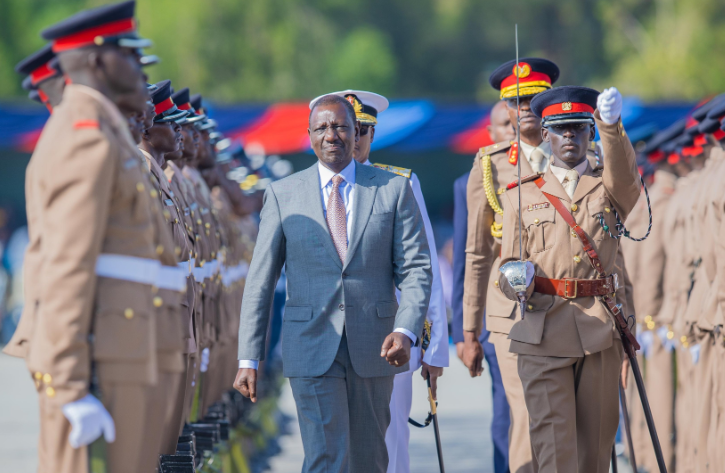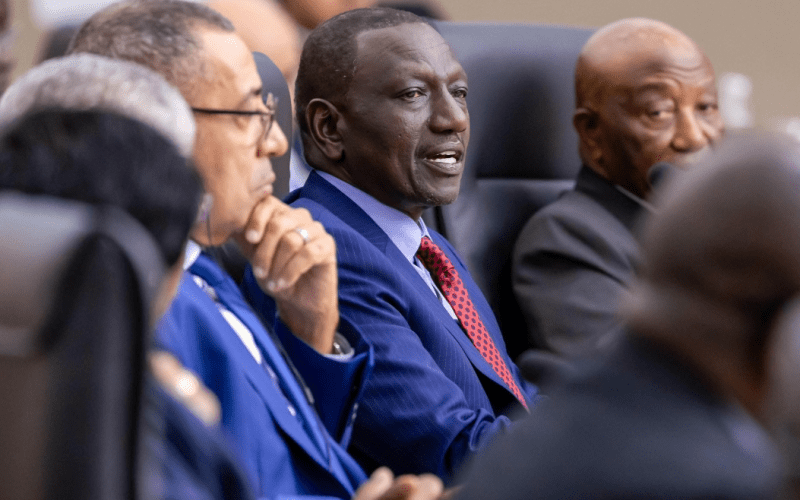World Bank gives gov’t 5 proposals to create jobs, grow economy

World Bank Kenya has released a report on the country’s economy’s status and policies that can be adopted to keep it on a positive trajectory.
The report titled ‘Kenya Economic Update‘ June 2024 edition has delved deeper into the country’s economic status and ways President William Ruto’s administration can create a robust job creation environment.
The policies highlighted by the World Bank include Revising trade and investment policies to foster export orientation, cementing policy coherence and predictability as well as strengthening institutions, enhancing strategic skills development and multifaceted support to export orientation, drawing in more FDI as a lever for optimizing the role of trade integration and mitigating trade and climate-related vulnerabilities.

“Kenya’s pursuit of enhanced trade integration aims to drive significant economic growth and robust job creation, steering the country toward becoming an upper-middle-income nation. To fully capitalize on these initiatives and ensure sustained economic growth as well as job creation, several policy areas need to be addressed,” the World Bank report read in part.
Revising trade and investment policies to foster export orientation
World Bank advised Ruto’s administration to fast-track tariff reductions for key imported inputs used by domestic producers and exporters. The global financial institutions listed inputs such as chemicals, food additives and packing materials which the government should consider when slashing tariffs.
World Bank explained that non-tariff measures would be key to resolving them and curtailing the development of new ones.
“Leveraging existing integration efforts to build further policy consensus on addressing potential anti-export bias imposed by tariff measures,” the report stated.
Enhance strategic skills development and multifaceted support to export orientation
According to the World Bank report, this involves investing in workforce skills development to stay competitive in the global market.
It also informed the current administration that economic growth can be achieved by expanding access to finance for businesses and entrepreneurs.
Further, the global financial institution challenged Ruto’s administration to tailor vocational training programs to meet the needs of high-growth industries like textiles and services. According to the World Bank, these policies will put Kenya on the trajectory of economic growth.
“Additionally, supporting innovation through accelerators and incubators, as well as fostering innovation in vulnerable sectors like agriculture to enhance their resilience and competitiveness, will further empower workers and businesses. By adopting this comprehensive strategy, Kenya can prepare its workforce for current and future trade challenges,” the World Bank insisted.
Mitigate trade and climate-related vulnerabilities
Recently the country received heavy rainfall that destroyed crops and disrupted other agricultural activities. With agriculture being among the pillars of economic growth, the World Bank has also given comprehensive measures to protect the sector.
According to the report, the World Bank argues that producers can adopt sustainable agricultural practices and diversify their production to include less climate-sensitive products.
Moreover, it emphasises the need for the National Government to play an active role in supporting agriculture by providing technical assistance, climate-resilient seeds, and financial incentives for sustainable practices.
” These strategies not only help in adapting to the immediate impacts of climate variability but also contribute to the long-term sustainability and resilience of Kenya’s economy.”
Cementing policy coherence and predictability as well as strengthening institutions
World Bank in the report has challenged the government to enhance tax predictability in order to prepare different players for expected shocks.
“Additionally, enhancing tax predictability should become a priority to provide a stable economic environment conducive to trade and investment,” the World Bank noted.
Additionally, it pointed out the need to strengthen institutions responsible for trade regulations to drive economic growth and create a robust environment for job creation.
Drawing in more Foreign direct investment (FDI) as a lever for optimizing the role of trade integration
According to the World Bank, this measure will require a focus on improving the business-enabling environment and strengthening Kenya’s investment policy and promotion efforts.
“It will also require streamlining procedures to reduce bureaucratic red tape that acts as an impediment. To realize this, coordinated and linked up action will be required at the national, sectoral, and county levels,” the World Bank highlighted.
Tight monetary policies, restrictive financial conditions, and the global trade slowdown weakened global growth. Global economic growth declined in 2023 and is expected to decline further in 2024 #KenyaEconomicUpdate
— World Bank Kenya (@WorldBankKenya) June 7, 2024
Download the Report here: https://t.co/H43cNzmJS1 pic.twitter.com/huFlbmafC0
For these and more credible stories, join our revamped Telegram and WhatsApp channels.
Telegram: https://t.me/peopledailydigital
WhatsApp: https://whatsapp.com/channel/0029Va698juDOQIToHyu1p2z












